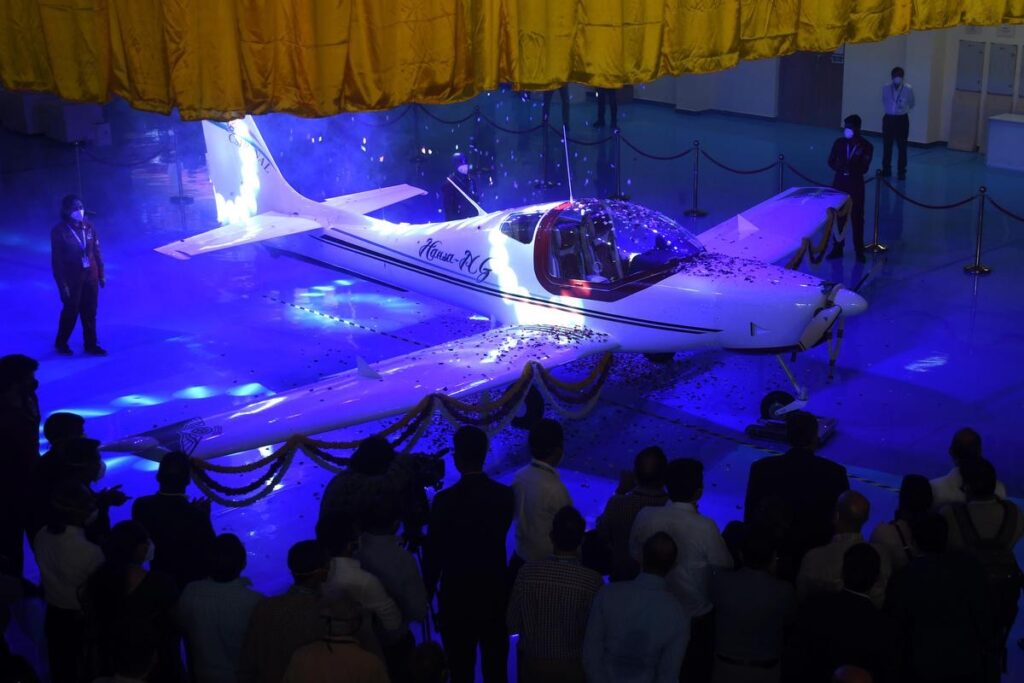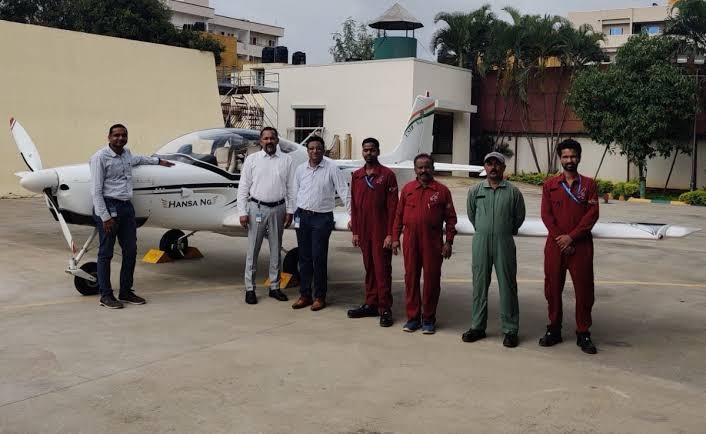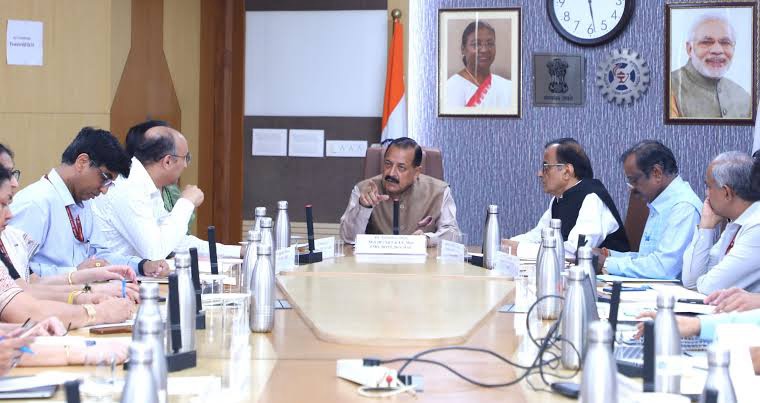This announcement was made today by Dr. Jitendra Singh, the Union Minister of State (Independent Charge) for Science & Technology, during a high-level monthly review meeting with the secretaries of all prominent science departments at the Science Centre.
In his role as Vice President of CSIR (Council of Scientific & Industrial Research), Dr. Jitendra Singh expressed pride in the fact that this new aircraft is being developed domestically by the CSIR institute known as the “National Aerospace Laboratories” (NAL) in Bengaluru.
The Electric Hansa (E-HANSA) trainer aircraft, created by CSIR-NAL, is anticipated to be considerably more economical than imported options, potentially costing around Rs 2 crore.
This price is approximately half that of a similar imported trainer aircraft.

The E-HANSA is an integral part of the broader HANSA-3 (NG) trainer aircraft initiative, which aims to provide a cost-effective and indigenous solution for pilot training within India. The introduction of India’s E-Hansa aircraft also represents a significant advancement toward the country’s green aviation objectives and the utilization of clean energy fuels for operating our aircraft, according to the Minister. Additionally, the meeting addressed performance evaluations, the status of previous decisions, and the strategic direction for transformative reforms in India’s science and technology landscape.
Emphasizing the importance of commercializing homegrown technologies, Dr. Jitendra Singh urged for enhanced public-private partnerships (PPP). He instructed the National Research
Development Corporation (NRDC) to adopt the successful frameworks of DBT-BIRAC and IN-SPACe for facilitating technology transfer and fostering private sector involvement.
Dr. Jitendra Singh, who also holds multiple ministerial positions including Union Minister of State (Independent Charge) for Earth Sciences, Minister of State in the PMO, Department of Atomic Energy, and Department of Space, as well as MoS for Personnel, Public Grievances, and Pensions, asserted, “Private entities should not only serve as knowledge partners but also as investment partners,” while promoting a hub-and-spoke PPP model bolstered by AI-driven technology/IP exchange platforms and regional NTTOs to ensure broader sectoral and geographical reach. He reiterated the significance of standardized technology transfer protocols, facilitating ease of doing business, and advancing Indian R&D in line with the principle of “Vasudhaiva Kutumbakam.”
In praising ISRO for the successful SPADEX mission, he highlighted that the tested docking and undocking capabilities are crucial for India’s forthcoming Gaganyaan human spaceflight.

He also commended ISRO’s significant contributions to Operation Sindoor, remarking, “Every Indian takes pride in your efforts.” He revealed that ISRO is currently engaged in collaborations with 40 Union Ministries and 28 State Governments, with a series of upcoming missions planned.
Regarding India’s involvement in the Axiom Space Mission, Dr. Jitendra Singh shared that Group Captain Subhash Shukla’s upcoming visit to the International Space Station (ISS) will encompass seven microgravity experiments, further enhancing India’s profile in space science.
In line with Prime Minister Narendra Modi’s vision for a ‘Viksit Bharat,’ Dr. Jitendra Singh advocated for a Whole-of-Science and Whole-of-Government strategy. Following the success of the Chintan Shivir held by the Ministry of Earth Sciences at NIOT in Chennai, he instructed that region-specific Chintan Shivirs be arranged throughout the nation. These gatherings will involve departments such as DST, DBT, CSIR, ISRO, Earth Sciences, and Atomic Energy in each region to foster integrated planning and collaboration.
To enhance India’s biomanufacturing capabilities, the Minister suggested establishing a “Global Science Talent Bridge” aimed at attracting top global researchers and innovators. He pointed out the Prime Minister’s Mann Ki Baat announcement, which made all 37 CSIR labs accessible to students, and noted that while the enthusiastic response was temporarily halted due to recent security issues, it will be reinstated shortly.Dr. Jitendra Singh also recognized the global interest in establishing bilateral science
collaboration centers, with countries such as Switzerland and Italy considering partnerships akin to the Indo-French and Indo-German Science Centres.
The meeting saw the participation of distinguished officials, including Prof. Ajay Kumar Sood, Principal Scientific Advisor to the Government of India; Dr. N. Kalaiselvi, DG and Secretary CSIR; Dr. V. Narayanan, Chairman ISRO and Secretary DoS; Dr. Abhay Karandikar, Secretary DST; Dr. Rajesh Gokhale, Secretary DBT; Dr. M. Ravichandran, Secretary Earth Sciences; Dr. M.Mohapatra, DG IMD; and Commodore Amit Rastogi (Retd), CMD NRDC, along with senior officials from the Department of Atomic Energy.
For all aviation-related guidance (DGCA ground classes, pilot training, cabin crew training)
Contact us https://contrail.in/
phone numbers +91 78457 69399


